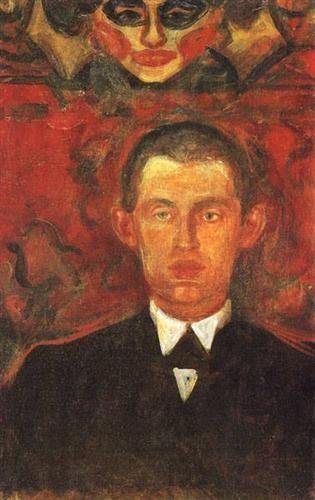Description
Edvard Munch's Self-Portrait Beneath the Mask of a Woman is a work of art that has captivated art lovers since its creation in 1895. This painting is a perfect example of the artistic expressionism style, which is characterized by the depiction of intense emotions and exploration of human psychology.
The painting's composition is fascinating, as Munch portrays himself wearing a woman's mask, suggesting a duality in his personality. The figure of the artist is in the center of the painting, surrounded by a dark background that accentuates the feeling of isolation and loneliness.
The use of color in this work is also very interesting. Munch uses dark and gloomy tones to create a melancholic and sad atmosphere. However, the woman's mask that covers her face is painted in bright, lively colors, suggesting a certain joy and vitality that is hidden behind the mask.
The story behind this painting is also very interesting. Munch created this work after a painful breakup, and the female mask is believed to represent his former lover. The painting is an exploration of the duality of personality and the internal struggle that Munch experienced after the breakup.
There are also little-known aspects of this work. For example, Munch is known to have created several versions of this painting, each one slightly different. Additionally, the female mask in the painting is believed to have been inspired by a mask Munch found at a flea market in Paris.

